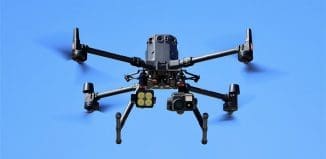New Survey: Americans Want Biometric Security
This post is also available in:  עברית (Hebrew)
עברית (Hebrew)
 A large majority of US citizens (87 percent) surveyed by Accenture said they are willing to share biometric details with border agencies to facilitate travel. However, only 19 percent said they have shared any biometric information to date.
A large majority of US citizens (87 percent) surveyed by Accenture said they are willing to share biometric details with border agencies to facilitate travel. However, only 19 percent said they have shared any biometric information to date.
According to HSToday survey respondents from Australia, France, Germany, Japan, the United Kingdom and the United States “believe biometrics can play a significant role in facilitating faster and more secure travel while protecting borders,” Accenture said.
“The survey findings show strong support from citizens for the greater use of biometrics to secure national borders, enable more convenient travel and facilitate faster processing through customs and border control,” said Mark Crego who leads Accenture’s global Border and Identity Services business. “The majority of citizens are willing to share biometric details to help increase border security and, at the same time, reap benefits such as faster processing times at borders and more convenient travel.”
According to the survey, US respondents are “very receptive to using biometrics as a means of improving overall border security: 65 percent say they would be likely to share biometrics if it meant making the country’s borders more secure,” Accenture said.
iHLS – Israel Homeland Security
The survey also found nearly three-fourths (71 percent) of citizens support the use of biometrics to verify the identities of all persons crossing borders (citizens and visitors) and a similar number (73 percent) believe that using biometrics to verify the identity of everyone crossing the border would make countries more secure.
“The strong support by citizens for technologies that can improve travel and secure borders demonstrates how important it is for border management agencies to continue adopting new tools that meet the demands of citizens and better manage the transit of people across borders,” Crego said in a statement. “Increasing the use of biometrics and introducing registered traveler programs can make traveling faster, safer and more convenient and strengthen both border and national security through improved intelligence gathering.”
Accenture said that, “When asked about the use of automated border clearance solutions, such as e-gates at airports and border crossings, less than one-fourth (23 percent) of respondents said they had used an e-gate in the past. However, of those who have used an e-gate, the majority (80 percent) said they would do so again if they had the option, and 85 percent of e-gate users found them faster than manual border clearance checkpoints managed by a border patrol officer.”
“Despite citizens’ support for biometrics and the greater use of technology to facilitate travel, more than two-thirds of respondents (68 percent) said that prior to deciding to share their biometric information, they would want to know what security measures were in place to protect the data, and 67 percent would want to know how their personal information is being used,” Accenture said.





























